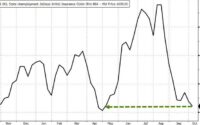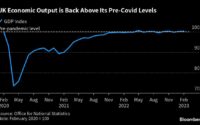Stock markets face a ‘perfect storm’ as high rates and China fears bite, analysts warn
Traders work on the floor of the New York Stock Exchange on August 16, 2023 in New York City.
Michael M. Santiago | Getty Images
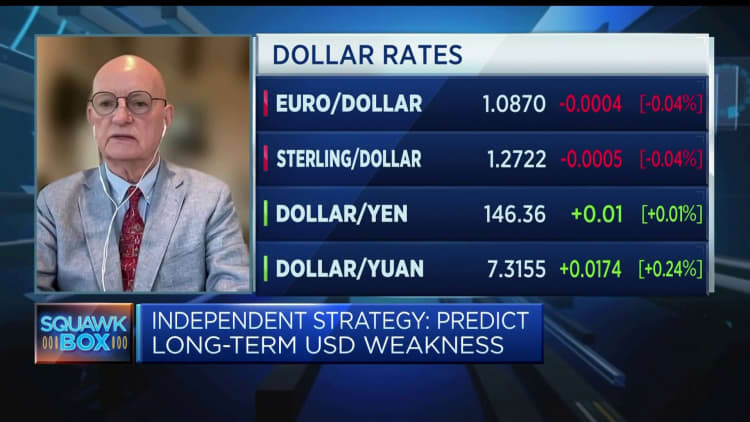
“Whether it’s the brewing crisis in the Chinese property market, the surge in U.S. bond yields on fears rates will stay higher for longer or the big drop in U.K. retail sales, things are starting to look a bit ugly out there,” AJ Bell Investment Director Russ Mould said by email.
The Friday declines compounded losses logged earlier in the week, after minutes from the U.S. Federal Reserve’s last meeting showed policymakers pointed to “upside risks” to inflation, while the committee remained open to further interest rate hikes to bring price growth down sustainably.
This prompted a spike in U.S. Treasury yields that sent the 10-year yield to a 16-year high, while 10-year German bunds rallied to their highest level since the March collapse of Silicon Valley Bank.
Evergrande’s bankruptcy protection filing, though worrisome in isolation, prompted greater concern about China’s real estate market when combined with peer Country Garden’s decision earlier this week to suspend payments on some of its bonds from Monday.
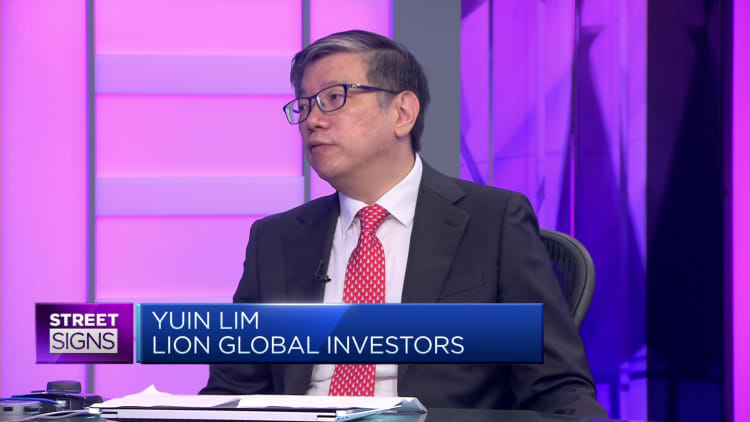
“Markets are being hit by the perfect storm, amid surging rates, worsening economic data in China, poor summer liquidity and a buyers’ strike,” Barclays Head of European Equity Strategy Emmanuel Cau said in a research note Friday.
Cau suggested the British bank’s previous view on China had arguably proven “too hopeful,” given the “lack of decisive policy action” since the Politburo meeting in late July.
“Complacency has gone, but absent a circuit breaker (i.e. large scale fiscal stimulus) we acknowledge sentiment on China is unlikely to reverse sustainably on its own.” Cau suggested this poses a problem for European and U.K. stocks.
As such, Barclays is recommending investors should take a “barbell” approach involving allocations to cyclical and defensive stocks and a “value tilt.”
A value tilt refers to tipping a portfolio towards stocks perceived to be trading at a discount relative to their financial fundamentals.
Partly due to wet weather, U.K. retail sales lost 1.2% in July, well below a consensus forecast of a 0.5% drop produced by a Reuters poll of economists, further dampening sentiment.
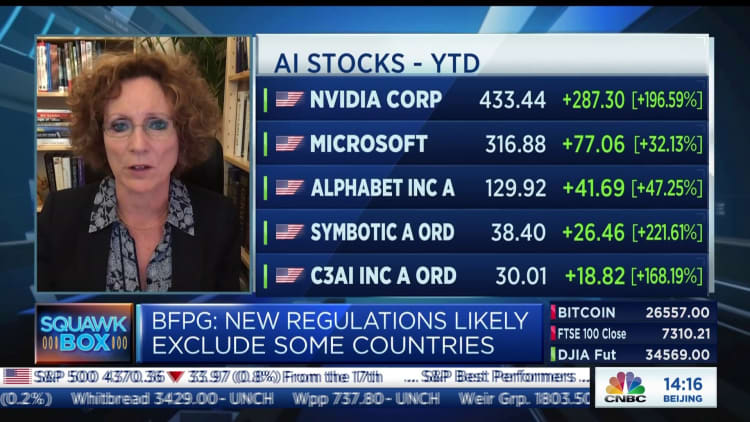
The Fed’s Jackson Hole symposium will come into focus next week, along with flash PMI (purchasing managers’ index) readings from a host of major economies, with the U.S. of particular interest as growth continues to surprise to the upside.
Though markets appear to be acknowledging more of the risks highlighted by economists in recent months, David Roche, president of Independent Strategy, told CNBC on Thursday that the downturn could have further to run once the whole spectrum of geopolitical and macroeconomic risks is priced in.
“I think when the correction comes, when people realize that profits are part of the adjustment to lower inflation, and when they realize that all these problems that you see from Latin America, and…Africa like Niger and the whole Sahel belt, and when you look at the problems in China, I think the downside in markets is very big, still, at these levels and they’re not priced for it,” Roche said.
[ad_2]
Source link
